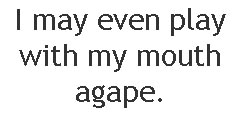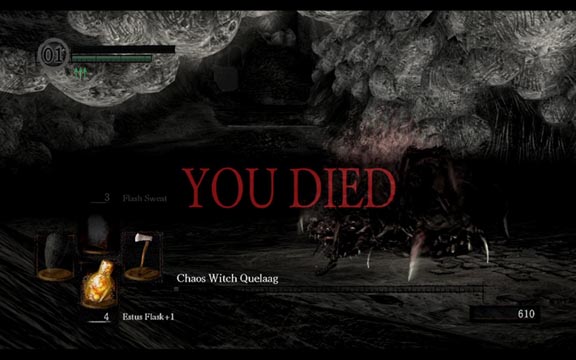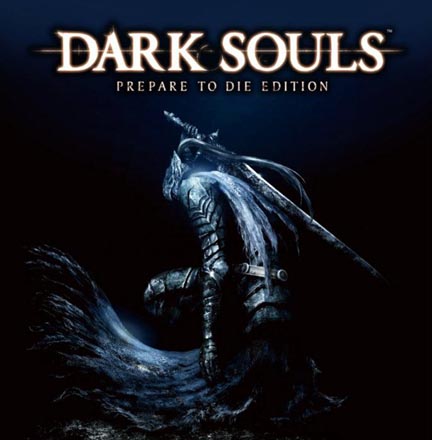Nick is a new contributor to ButtonMashing.com. He’s thrilled that Tony – out of a whim of inspiration or folly – gave him a login ID and password to the site. He prefers to use 3rd person when introducing himself, even though he blatantly abuses 1st person in the proceeding post which functions in part as a personal introduction. He thinks that using 3rd person is a method to avoid narcissism, but pretending to be someone else introducing yourself seems pretty frikkin’ narcissistic to me – and now I’ve gone and confused myself, not even sure where I’m going with this anymore. So, let’s just talk about video games.  Â
PLAY DARK SOULS, THEY SAID! IT’LL BE FUN, THEY SAID!
Â
With Dark Souls the power is truly with the player; a pure, ‘ol timey power that seems to have been eclipsed with technological achievements and expectations. The game has been out for almost a year now, and a review at this point would be moot. I aim for this to be more of an editorial, a good ‘ol fashioned blog post about a fantastic game. Likewise, Dark Souls developer FromSoftware has announced a PC edition to be released sometime late summer, as well as additional console DLC available later this year – and the rumor mill is buzzing oh-so-fervidly about a possible sequel in the making, which may or may not have been confirmed. Therefore, I deem this post as a relevant opportunity to accomplish two things: 1) Bring the game back to the surface; bring it to the attention of gamers who might have overlooked its release or have been spooked by the game’s menacing pathos, 1.5) To debase and reorient the reputation that Dark Souls has earned within the internet community, and 2) To introduce myself as a gamer through my experience of playing Dark Souls.
This past January I procured a PS3 rather compulsively and with very little detriment to personal finances. I am, by nature, a PC gamer, and given that I have a background steeped almost exclusively in dated RTS games the purchase of a PS3 was to be my first foray into modern, hi-def gaming. Indeed, between January and the end of April 2012 I played through Portal 2, Uncharted 2, Deus Ex: Human Revolutions, and played a good 30 hours into Kingdoms of Amalur: Reckoning. I worked my way through each of these games lumped in the comfort of a plush big boy recliner, in the reclined position so that sometimes I would shift focus to my awesome moccasins and think about how awesome they are and how comfortable I am and how enjoyable the games are played in the reclined position and how buying a PS3 to serve as the ultimate leisure device was the smartest thing that I could have possibly done.
As a point of contrast: May 2012 through the present, 97% of my experience with Dark Souls has been spent in an upright position, feet firmly on the floor, controller rigidly held, elbows bruising my quadriceps, pupils dilated and focused intensely on the television. I may even play with my mouth agape. Now, many conclusions can be drawn from this exercise of comparing Dark Souls with the aforementioned games – of which I will confidently lump together with most other contemporary titles. I’d like to, however, come straight to the point: Believe the hype that surrounds this game. You may have to dig a little bit but once you catch a glimpse of the cult of players it is impossible to stay on the fringe. Get caught up in the hype (I did) – but do not be misled by players who have failed. Dark Souls is not notoriously, unmercifully difficult; it is demanding. And this is the key; this is where the power is handed to the player. PLAYER POWER! What you get out of this RPG is equivalent to what you put into it. Many players will not meet the game’s high level of expectation, and they fail, blaming everything and everyone but themselves. As for myself, the average gamer fairly inexperienced with HD 3rd person RPG: I went in flabby and proud (ignorant); I came out chiseled and humbled. It is this process of transformation that I found gratifying; a gamer transformation that most other modern, hi-def games simply do not facilitate. It is a transformation that is earned, and treasured with reverence.
stay on the fringe. Get caught up in the hype (I did) – but do not be misled by players who have failed. Dark Souls is not notoriously, unmercifully difficult; it is demanding. And this is the key; this is where the power is handed to the player. PLAYER POWER! What you get out of this RPG is equivalent to what you put into it. Many players will not meet the game’s high level of expectation, and they fail, blaming everything and everyone but themselves. As for myself, the average gamer fairly inexperienced with HD 3rd person RPG: I went in flabby and proud (ignorant); I came out chiseled and humbled. It is this process of transformation that I found gratifying; a gamer transformation that most other modern, hi-def games simply do not facilitate. It is a transformation that is earned, and treasured with reverence.
It was once asked of me, and asked in a rather haughty tone: can you change difficulty level mid-game? As if to suggest that this is a favorable and strong suit of gameplay mechanics. This question came whilst I was mid-way through my own grueling journey of Dark Souls. Battered, emboldened, a little wiser, but still tasting blood from the previous night’s round of battles I could not help but let out a chortle of pity for my inquisitor. There is but one “difficulty level†in Dark Souls, and that level is called SURVIVAL! The game is designed so that the player is constantly required to stick his neck out. On the first run through your precious jugular is at the mercy of not the enemies but your own aptitude, which is waxed stronger death by death by death. Dark Souls will pit you face to face with monstrous uncertainty. There is a constant sense of immediacy. Your HP is so, so very precious. Keep your resolve, be measured in your actions and you’ll make it through without too many frustrated flings of the controller. But the second you get cocky or ham-fisted Dark Souls will #^@& you running…

I assert that optimum player power and control can only come in purposeful playing. This is not a game to be played for hours at a time. Gameplay operates on a bell-curve. When you are in-tune there is a natural progression of warm-up and apex. Sometimes there is a gradual downward slope but it is often trumped by sudden quits (not rage quits, because you’re better than that), moments when you wisely walk away with integrity intact and faculties still operable. This measured approach compliments the design of Dark Souls, on many fronts, because it is a game that reveals all aspects of itself piece by piece – and perhaps not fully in the first play through. The story does not evolve in a linear fashion, through chatty dialog or an abundance of decision prompts – a false approach to player power. The jaded NPC’s speak succinctly, often cryptically. They inhabit a world whose story is directly connected to the mechanics of the gameplay not narrative. Take multiplayer for example; it is not just an added feature – it is a functional part of the fabric of reality. Each player is inexorably tapped into the games of others’ and one may choose his own level of involvement. The player power you exert does not entirely become scripted code that triggers events further in the game (character alignment? psh). In a world that is as binary as survival/demise, the power within is your livelihood.
I first watched this video when I was well into my first playthrough of Dark Souls, and I have watched it many times since. Not only is it a fantastic video but it is true to the game’s immense presence. I watch with wonder and pride. But mostly, the video fills me with validation that my efforts – my successes and failures – are mine. Indeed, there are others playing in realm of Lordrain, others like you, but this journey is yours… and yours alone. I love the short bonfire scene at 1:05, with the knight turning from safety, drawing the attention of others, and thrusting his fist confidently into the air – as if to suggest, ‘I’m going in’. Yes. This game is the great equalizer; it levels the gameplaying field and empowers the player through its imposed limitations. Dark Souls relies on the player for it to succeed as a gaming experience – and there is no grater power that can be given.








